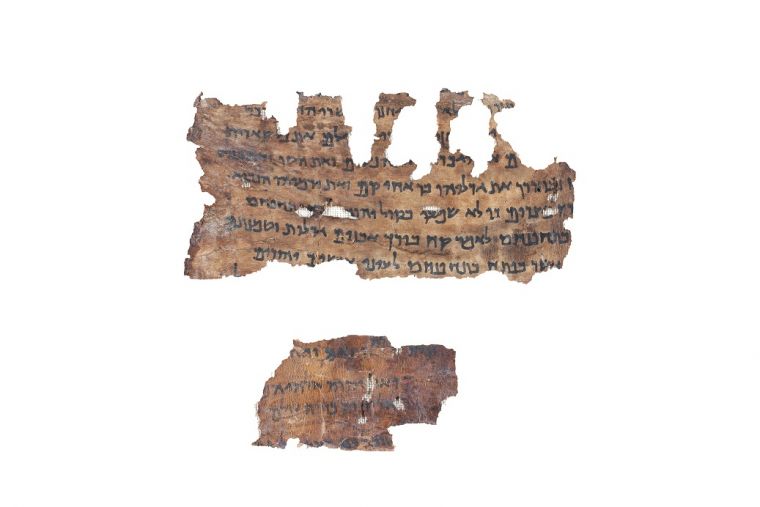Dead Sea Scrolls and DNA: what the latest research tells us

It was announced that some 35 of the Dead Sea Scrolls have had their DNA tested. Most of the Dead Sea Scrolls are written on parchment - animal skin - and scholars have now tried to determine which animals were used.
Scholars from Israel (Tel Aviv), Sweden (Uppsala) and USA (New York) cooperated in this enterprise, and thanks to modern technology only very small samples were needed, so the destruction to the priceless texts is minimal.
The Dead Sea Scrolls are Jewish texts dating from the time just before Christ and up to AD 70. They came to light from 1946 in caves near Qumran, close to the Dead Sea, hence they are also known as the Qumran texts.
For whatever reason, the latest announcement from the Israel Antiquities Authority (IAA) ignores the fact that already in 1995 it had been established that most scrolls were made out of sheep skins, rather than goats skins as previously assumed.
The main interest of this research lies in the fact that fragments of scrolls can now be combined more reliably. This is important because although there are many more or less complete scrolls, most are badly preserved and exist only in thousands of fragments. After 75 years, the process of piecing these together to construct coherent texts has made little progress. The hope is that knowing which snippets are written on the same parchment – now an objective fact – will speed up this process.
Conversely, it has now become clear that two small fragments of the Book of Jeremiah, which had been thought to belong to the same scroll, are in fact very diverse: one is written on sheep skin but the other on cow skin! Jeremiah specialists will be fascinated by this result.
From everywhere
The tests also confirm that at least several scrolls were not written locally but outside Qumran. This is definitely true for the few scrolls made of cow skins, because in the Judean desert cows cannot be kept due to a lack of grass and water.
Many scholars still assume that most or all Dead Sea Scrolls stem from the settlement of Qumran, which they think was occupied by a Jewish sect, maybe the Essenes. In view of the heterogeneity of the scrolls' contents, I think it is more likely that they came from many different places, and were only brought to the caves to hide them when the Romans approached during the Jewish War of AD 67-73.
The IAA said on Tuesday that "it was discovered that all the sampled scroll-fragments written using a particular scribal system characteristic to the sectarian writings found in the Qumran caves (the 'Qumran scribal practice') are genetically linked and differ collectively from other scroll-fragments that were written in different ways and discovered in the very same caves".
It continues: "This finding affords a new and powerful tool for distinguishing between scrolls peculiar to the sect and scrolls that were brought from elsewhere, and potentially reflect the broader Jewish society of the period."
In other words, there is now material evidence that the Dead Sea Scrolls are a heterogeneous collection. For example, one fragment of a scroll of Isaiah is definitely written on different parchment from the others; this even makes the experts wonder if this fragment was found at Qumran or added to the finds from elsewhere.
Of course, some claims in the press are wildly exaggerated. Among the Dead Sea Scrolls are some ten copies of the sectarian 'Songs of the Sabbath Sacrifice', which was also found at Masada. It now turns out that the copy from Masada is written on different parchment. Why would this be a surprise? Yet the press release claims that this indicates "that the work had a wide currency" and "as the Songs of the Sabbath Sacrifice foreshadows revolutionary developments in poetic design and religious thinking, this conclusion has implications for the history of Western mysticism and Jewish liturgy". Humbug.
The website of the Jerusalem Post uses the header 'DNA analysis of Dead Sea Scrolls unveils their once secret origin'. No need to comment.
Rev Dr Pieter Lalleman is a tutor in Biblical Studies at Spurgeon's College.











